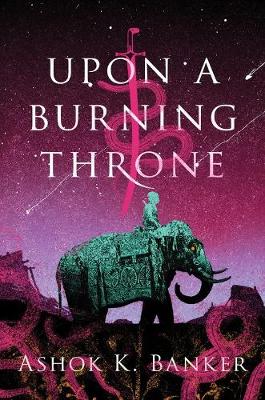Reviewed by Amber (The Literary Phoenix) on
The story sets itself to be a fight for the throne between the three children, but that's not what happens. The little girl is never seen again, although her father causes some level of trouble. Adri and Shvate grow up, but are generally not hindered by their blindness or albinism, respectively. In fact, there doesn't seem to be much point in attributing these things, save to illustrate the fact that the daughter would have been, by this society's values, a more apt choice for ruler.
The rest of the tale ambles along. There are random time jumps, and a lot of the events seem to take place off-screen, per se. We find out many events by listening to characters be reminded after a period of amnesia, or by switching perspectives and having two different characters talk about it. It's nearly 800 pages, but I'd say only 30% of that comprises actual action.
I'd also like to talk about the treatment of female characters. Banker builds up exciting characters in Karni and Mayla, strong women with a fighting spirit and intelligence. Then he reduces them both to babymaking machines. The mothers of demigods, maybe, but suited to be mothers only. Even Jilana, who helps rule as co-regent, is reduced to a bumbling, illogical mess when it comes to the safety of her grandsons. It's just... disappointing. A step in the wrong direction for modernity.
Between the disappointment of the characters, the fantastic setup that went nowhere, and the disjointed jumping around, I didn't care for this novel. It bills itself as an Indian Game of Thrones, and it very well could have gone that way, but there were too many people who didn't want the throne alongside characters being shoved in stereotypical social roles... at the end of nearly an 800 page book, I felt like nothing had happened and I didn't care what would happen next.
Reading updates
- Started reading
- 25 February, 2019: Finished reading
- 25 February, 2019: Reviewed
